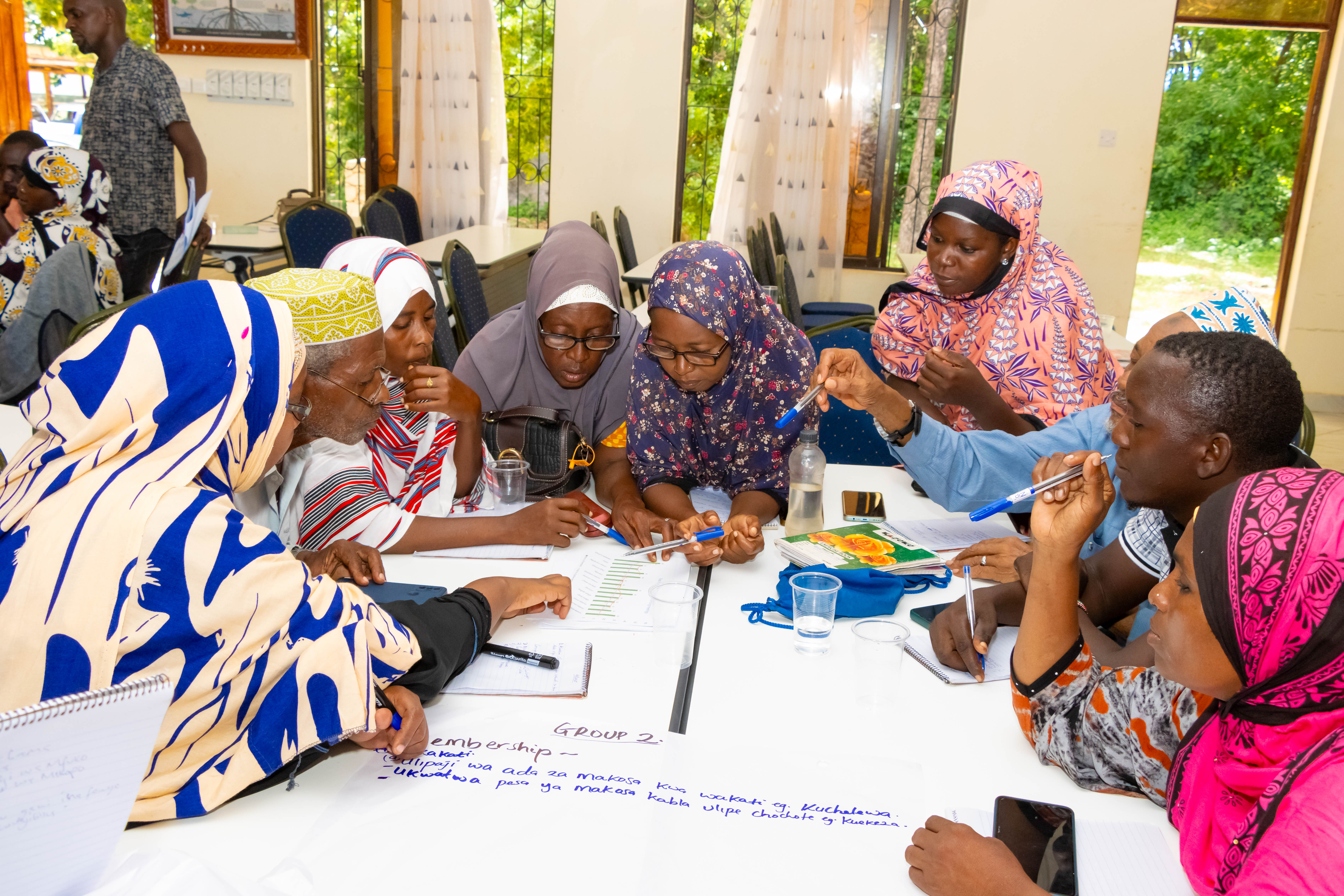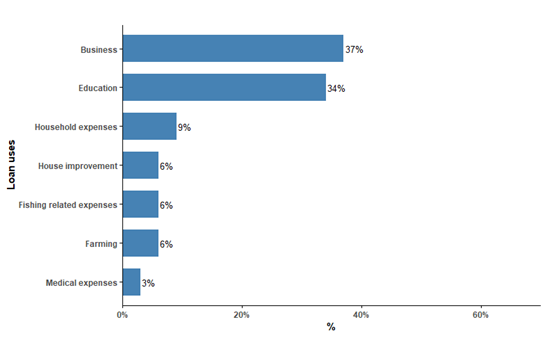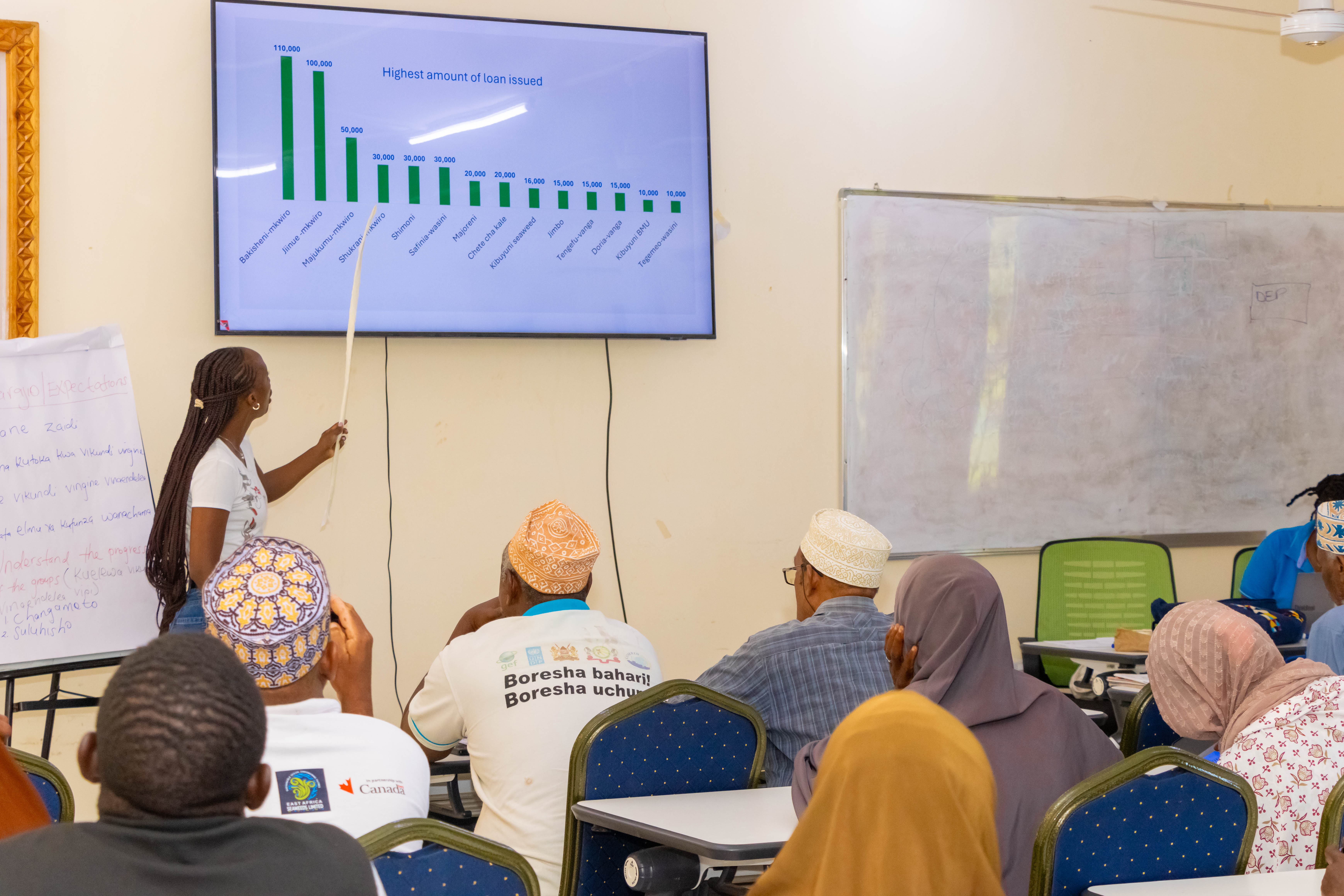💰 Access To Finance (Eco-credit)
Since 2021, We have been pioneering an Eco-credit model that links access to small loans with tangible conservation actions. The goal is simple to help coastal households diversify income, strengthen resilience, and protect the ecosystems that sustain them.


💡 Why It Matters
For many coastal families, limited livelihood options mean overdependence on marine resources. Eco-credit breaks that cycle empowering communities to grow businesses and nurture healthy coasts.
⚙️ How It Works
💰 We partner with community groups that qualify for seed grants and revolving loans, based on their commitment to conservation activities such as mangrove restoration, reef monitoring, or beach clean-ups.
🌊 With support from partners including Blue Ventures, NORAD, and the Livelihood Impact Fund, the model has grown from a small pilot into a network of thriving eco-credit groups transforming Kenya’s coast.


The Impact
📊 Milestones & Impact
- 💸 32 active eco-credit groups reaching 950+ members, 62% of them women.
- 🌿 60% fund growth achieved from interest, penalties, and group businesses.
- 💰 USD 33,000 saved collectively, with loan sizes increasing from USD 20 → USD 207.
- 👩🏽💼 10% of members started new businesses; 43% expanded existing ones.
- 🧑🏾🏫 130 members trained in business management and 68 leaders in leadership and life skills.
- 🌿 Each loan and repayment fuels conservation; members plant mangroves, restore habitats, and strengthen stewardship.
16.2 M
"Eco-credit is different compared to other schemes we have access to. In Eco-credit, we conserve the environment and at the same time get loans in form of money which we use to empower ourselves by starting and expanding our businesses and also take our children to school." Mwandazi Kassim Shee, Member Majoreni Eco-credit group
"Eco-credit is different compared to other schemes we have access to. In Eco-credit, we conserve the environment and at the same time get loans in form of money which we use to empower ourselves by starting and expanding our businesses and also take our children to school." Mwandazi Kassim Shee, Member Majoreni Eco-credit group

Stay updated
Our annual newsletter highlights our program impacts and updates on livelihood and conservation activities and milestones.
.png)




